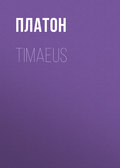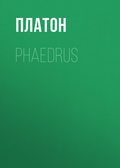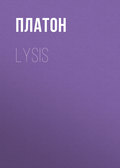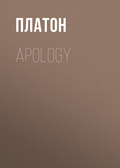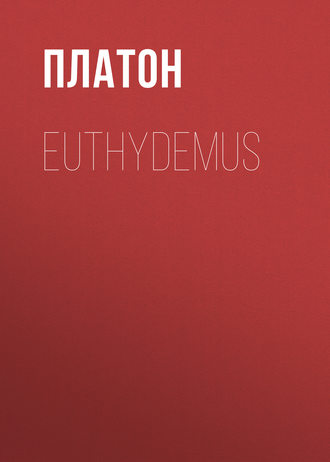
Платон
Euthydemus
Well, I said, there is nothing that I should like better than to be self-convicted of this, for if I am really a wise man, which I never knew before, and you will prove to me that I know and have always known all things, nothing in life would be a greater gain to me.
Answer then, he said.
Ask, I said, and I will answer.
Do you know something, Socrates, or nothing?
Something, I said.
And do you know with what you know, or with something else?
With what I know; and I suppose that you mean with my soul?
Are you not ashamed, Socrates, of asking a question when you are asked one?
Well, I said; but then what am I to do? for I will do whatever you bid; when I do not know what you are asking, you tell me to answer nevertheless, and not to ask again.
Why, you surely have some notion of my meaning, he said.
Yes, I replied.
Well, then, answer according to your notion of my meaning.
Yes, I said; but if the question which you ask in one sense is understood and answered by me in another, will that please you – if I answer what is not to the point?
That will please me very well; but will not please you equally well, as I imagine.
I certainly will not answer unless I understand you, I said.
You will not answer, he said, according to your view of the meaning, because you will be prating, and are an ancient.
Now I saw that he was getting angry with me for drawing distinctions, when he wanted to catch me in his springes of words. And I remembered that Connus was always angry with me when I opposed him, and then he neglected me, because he thought that I was stupid; and as I was intending to go to Euthydemus as a pupil, I reflected that I had better let him have his way, as he might think me a blockhead, and refuse to take me. So I said: You are a far better dialectician than myself, Euthydemus, for I have never made a profession of the art, and therefore do as you say; ask your questions once more, and I will answer.
Answer then, he said, again, whether you know what you know with something, or with nothing.
Yes, I said; I know with my soul.
The man will answer more than the question; for I did not ask you, he said, with what you know, but whether you know with something.
Again I replied, Through ignorance I have answered too much, but I hope that you will forgive me. And now I will answer simply that I always know what I know with something.
And is that something, he rejoined, always the same, or sometimes one thing, and sometimes another thing?
Always, I replied, when I know, I know with this.
Will you not cease adding to your answers?
My fear is that this word 'always' may get us into trouble.
You, perhaps, but certainly not us. And now answer: Do you always know with this?
Always; since I am required to withdraw the words 'when I know.'
You always know with this, or, always knowing, do you know some things with this, and some things with something else, or do you know all things with this?
All that I know, I replied, I know with this.
There again, Socrates, he said, the addition is superfluous.
Well, then, I said, I will take away the words 'that I know.'
Nay, take nothing away; I desire no favours of you; but let me ask: Would you be able to know all things, if you did not know all things?
Quite impossible.
And now, he said, you may add on whatever you like, for you confess that you know all things.
I suppose that is true, I said, if my qualification implied in the words 'that I know' is not allowed to stand; and so I do know all things.
And have you not admitted that you always know all things with that which you know, whether you make the addition of 'when you know them' or not? for you have acknowledged that you have always and at once known all things, that is to say, when you were a child, and at your birth, and when you were growing up, and before you were born, and before the heaven and earth existed, you knew all things, if you always know them; and I swear that you shall always continue to know all things, if I am of the mind to make you.
But I hope that you will be of that mind, reverend Euthydemus, I said, if you are really speaking the truth, and yet I a little doubt your power to make good your words unless you have the help of your brother Dionysodorus; then you may do it. Tell me now, both of you, for although in the main I cannot doubt that I really do know all things, when I am told so by men of your prodigious wisdom – how can I say that I know such things, Euthydemus, as that the good are unjust; come, do I know that or not?
Certainly, you know that.
What do I know?
That the good are not unjust.
Quite true, I said; and that I have always known; but the question is, where did I learn that the good are unjust?
Nowhere, said Dionysodorus.
Then, I said, I do not know this.
You are ruining the argument, said Euthydemus to Dionysodorus; he will be proved not to know, and then after all he will be knowing and not knowing at the same time.
Dionysodorus blushed.
I turned to the other, and said, What do you think, Euthydemus? Does not your omniscient brother appear to you to have made a mistake?
What, replied Dionysodorus in a moment; am I the brother of Euthydemus?
Thereupon I said, Please not to interrupt, my good friend, or prevent Euthydemus from proving to me that I know the good to be unjust; such a lesson you might at least allow me to learn.
You are running away, Socrates, said Dionysodorus, and refusing to answer.
No wonder, I said, for I am not a match for one of you, and a fortiori I must run away from two. I am no Heracles; and even Heracles could not fight against the Hydra, who was a she-Sophist, and had the wit to shoot up many new heads when one of them was cut off; especially when he saw a second monster of a sea-crab, who was also a Sophist, and appeared to have newly arrived from a sea-voyage, bearing down upon him from the left, opening his mouth and biting. When the monster was growing troublesome he called Iolaus, his nephew, to his help, who ably succoured him; but if my Iolaus, who is my brother Patrocles (the statuary), were to come, he would only make a bad business worse.
And now that you have delivered yourself of this strain, said Dionysodorus, will you inform me whether Iolaus was the nephew of Heracles any more than he is yours?
I suppose that I had best answer you, Dionysodorus, I said, for you will insist on asking – that I pretty well know – out of envy, in order to prevent me from learning the wisdom of Euthydemus.
Then answer me, he said.
Well then, I said, I can only reply that Iolaus was not my nephew at all, but the nephew of Heracles; and his father was not my brother Patrocles, but Iphicles, who has a name rather like his, and was the brother of Heracles.
And is Patrocles, he said, your brother?
Yes, I said, he is my half-brother, the son of my mother, but not of my father.
Then he is and is not your brother.
Not by the same father, my good man, I said, for Chaeredemus was his father, and mine was Sophroniscus.
And was Sophroniscus a father, and Chaeredemus also?
Yes, I said; the former was my father, and the latter his.
Then, he said, Chaeredemus is not a father.
He is not my father, I said.
But can a father be other than a father? or are you the same as a stone?
I certainly do not think that I am a stone, I said, though I am afraid that you may prove me to be one.
Are you not other than a stone?
I am.
And being other than a stone, you are not a stone; and being other than gold, you are not gold?
Very true.
And so Chaeredemus, he said, being other than a father, is not a father?
I suppose that he is not a father, I replied.
For if, said Euthydemus, taking up the argument, Chaeredemus is a father, then Sophroniscus, being other than a father, is not a father; and you, Socrates, are without a father.
Ctesippus, here taking up the argument, said: And is not your father in the same case, for he is other than my father?
Assuredly not, said Euthydemus.
Then he is the same?
He is the same.
I cannot say that I like the connection; but is he only my father, Euthydemus, or is he the father of all other men?
Of all other men, he replied. Do you suppose the same person to be a father and not a father?
Certainly, I did so imagine, said Ctesippus.
And do you suppose that gold is not gold, or that a man is not a man?
They are not 'in pari materia,' Euthydemus, said Ctesippus, and you had better take care, for it is monstrous to suppose that your father is the father of all.
But he is, he replied.
What, of men only, said Ctesippus, or of horses and of all other animals?
Of all, he said.
And your mother, too, is the mother of all?
Yes, our mother too.
Yes; and your mother has a progeny of sea-urchins then?
Yes; and yours, he said.
And gudgeons and puppies and pigs are your brothers?
And yours too.
And your papa is a dog?
And so is yours, he said.
If you will answer my questions, said Dionysodorus, I will soon extract the same admissions from you, Ctesippus. You say that you have a dog.
Yes, a villain of a one, said Ctesippus.
And he has puppies?
Yes, and they are very like himself.
And the dog is the father of them?
Yes, he said, I certainly saw him and the mother of the puppies come together.
And is he not yours?
To be sure he is.
Then he is a father, and he is yours; ergo, he is your father, and the puppies are your brothers.
Let me ask you one little question more, said Dionysodorus, quickly interposing, in order that Ctesippus might not get in his word: You beat this dog?
Ctesippus said, laughing, Indeed I do; and I only wish that I could beat you instead of him.
Then you beat your father, he said.
I should have far more reason to beat yours, said Ctesippus; what could he have been thinking of when he begat such wise sons? much good has this father of you and your brethren the puppies got out of this wisdom of yours.
But neither he nor you, Ctesippus, have any need of much good.
And have you no need, Euthydemus? he said.
Neither I nor any other man; for tell me now, Ctesippus, if you think it good or evil for a man who is sick to drink medicine when he wants it; or to go to war armed rather than unarmed.
Good, I say. And yet I know that I am going to be caught in one of your charming puzzles.
That, he replied, you will discover, if you answer; since you admit medicine to be good for a man to drink, when wanted, must it not be good for him to drink as much as possible; when he takes his medicine, a cartload of hellebore will not be too much for him?
Ctesippus said: Quite so, Euthydemus, that is to say, if he who drinks is as big as the statue of Delphi.
And seeing that in war to have arms is a good thing, he ought to have as many spears and shields as possible?
Very true, said Ctesippus; and do you think, Euthydemus, that he ought to have one shield only, and one spear?
I do.
And would you arm Geryon and Briareus in that way? Considering that you and your companion fight in armour, I thought that you would have known better…Here Euthydemus held his peace, but Dionysodorus returned to the previous answer of Ctesippus and said: —
Do you not think that the possession of gold is a good thing?
Yes, said Ctesippus, and the more the better.
And to have money everywhere and always is a good?
Certainly, a great good, he said.
And you admit gold to be a good?
Certainly, he replied.
And ought not a man then to have gold everywhere and always, and as much as possible in himself, and may he not be deemed the happiest of men who has three talents of gold in his belly, and a talent in his pate, and a stater of gold in either eye?
Yes, Euthydemus, said Ctesippus; and the Scythians reckon those who have gold in their own skulls to be the happiest and bravest of men (that is only another instance of your manner of speaking about the dog and father), and what is still more extraordinary, they drink out of their own skulls gilt, and see the inside of them, and hold their own head in their hands.
And do the Scythians and others see that which has the quality of vision, or that which has not? said Euthydemus.
That which has the quality of vision clearly.
And you also see that which has the quality of vision? he said. [Note: the ambiguity of (Greek), 'things visible and able to see,' (Greek), 'the speaking of the silent,' the silent denoting either the speaker or the subject of the speech, cannot be perfectly rendered in English.] Compare Aristot. Soph. Elenchi (Poste's translation): —
'Of ambiguous propositions the following are instances: —
'I hope that you the enemy may slay.
'Whom one knows, he knows. Either the person knowing or the person known is here affirmed to know.
'What one sees, that one sees: one sees a pillar: ergo, that one pillar sees.
'What you ARE holding, that you are: you are holding a stone: ergo, a stone you are.
'Is a speaking of the silent possible? "The silent" denotes either the speaker are the subject of speech.
'There are three kinds of ambiguity of term or proposition. The first is when there is an equal linguistic propriety in several interpretations; the second when one is improper but customary; the third when the ambiguity arises in the combination of elements that are in themselves unambiguous, as in "knowing letters." "Knowing" and "letters" are perhaps separately unambiguous, but in combination may imply either that the letters are known, or that they themselves have knowledge. Such are the modes in which propositions and terms may be ambiguous.'
Yes, I do.
Then do you see our garments?
Yes.
Then our garments have the quality of vision.
They can see to any extent, said Ctesippus.
What can they see?
Nothing; but you, my sweet man, may perhaps imagine that they do not see; and certainly, Euthydemus, you do seem to me to have been caught napping when you were not asleep, and that if it be possible to speak and say nothing – you are doing so.
And may there not be a silence of the speaker? said Dionysodorus.
Impossible, said Ctesippus.
Or a speaking of the silent?
That is still more impossible, he said.
But when you speak of stones, wood, iron bars, do you not speak of the silent?
Not when I pass a smithy; for then the iron bars make a tremendous noise and outcry if they are touched: so that here your wisdom is strangely mistaken; please, however, to tell me how you can be silent when speaking (I thought that Ctesippus was put upon his mettle because Cleinias was present).
When you are silent, said Euthydemus, is there not a silence of all things?
Yes, he said.
But if speaking things are included in all things, then the speaking are silent.
What, said Ctesippus; then all things are not silent?
Certainly not, said Euthydemus.
Then, my good friend, do they all speak?
Yes; those which speak.
Nay, said Ctesippus, but the question which I ask is whether all things are silent or speak?
Neither and both, said Dionysodorus, quickly interposing; I am sure that you will be 'non-plussed' at that answer.
Here Ctesippus, as his manner was, burst into a roar of laughter; he said, That brother of yours, Euthydemus, has got into a dilemma; all is over with him. This delighted Cleinias, whose laughter made Ctesippus ten times as uproarious; but I cannot help thinking that the rogue must have picked up this answer from them; for there has been no wisdom like theirs in our time. Why do you laugh, Cleinias, I said, at such solemn and beautiful things?
Why, Socrates, said Dionysodorus, did you ever see a beautiful thing?
Yes, Dionysodorus, I replied, I have seen many.
Were they other than the beautiful, or the same as the beautiful?
Now I was in a great quandary at having to answer this question, and I thought that I was rightly served for having opened my mouth at all: I said however, They are not the same as absolute beauty, but they have beauty present with each of them.
And are you an ox because an ox is present with you, or are you Dionysodorus, because Dionysodorus is present with you?
God forbid, I replied.
But how, he said, by reason of one thing being present with another, will one thing be another?
Is that your difficulty? I said. For I was beginning to imitate their skill, on which my heart was set.
Of course, he replied, I and all the world are in a difficulty about the non-existent.
What do you mean, Dionysodorus? I said. Is not the honourable honourable and the base base?
That, he said, is as I please.
And do you please?
Yes, he said.
And you will admit that the same is the same, and the other other; for surely the other is not the same; I should imagine that even a child will hardly deny the other to be other. But I think, Dionysodorus, that you must have intentionally missed the last question; for in general you and your brother seem to me to be good workmen in your own department, and to do the dialectician's business excellently well.
What, said he, is the business of a good workman? tell me, in the first place, whose business is hammering?
The smith's.
And whose the making of pots?
The potter's.
And who has to kill and skin and mince and boil and roast?
The cook, I said.
And if a man does his business he does rightly?
Certainly.
And the business of the cook is to cut up and skin; you have admitted that?
Yes, I have admitted that, but you must not be too hard upon me.
Then if some one were to kill, mince, boil, roast the cook, he would do his business, and if he were to hammer the smith, and make a pot of the potter, he would do their business.
Poseidon, I said, this is the crown of wisdom; can I ever hope to have such wisdom of my own?
And would you be able, Socrates, to recognize this wisdom when it has become your own?
Certainly, I said, if you will allow me.
What, he said, do you think that you know what is your own?
Yes, I do, subject to your correction; for you are the bottom, and Euthydemus is the top, of all my wisdom.
Is not that which you would deem your own, he said, that which you have in your own power, and which you are able to use as you would desire, for example, an ox or a sheep – would you not think that which you could sell and give and sacrifice to any god whom you pleased, to be your own, and that which you could not give or sell or sacrifice you would think not to be in your own power?
Yes, I said (for I was certain that something good would come out of the questions, which I was impatient to hear); yes, such things, and such things only are mine.
Yes, he said, and you would mean by animals living beings?
Yes, I said.
You agree then, that those animals only are yours with which you have the power to do all these things which I was just naming?
I agree.
Then, after a pause, in which he seemed to be lost in the contemplation of something great, he said: Tell me, Socrates, have you an ancestral Zeus? Here, anticipating the final move, like a person caught in a net, who gives a desperate twist that he may get away, I said: No, Dionysodorus, I have not.
What a miserable man you must be then, he said; you are not an Athenian at all if you have no ancestral gods or temples, or any other mark of gentility.
Nay, Dionysodorus, I said, do not be rough; good words, if you please; in the way of religion I have altars and temples, domestic and ancestral, and all that other Athenians have.
And have not other Athenians, he said, an ancestral Zeus?
That name, I said, is not to be found among the Ionians, whether colonists or citizens of Athens; an ancestral Apollo there is, who is the father of Ion, and a family Zeus, and a Zeus guardian of the phratry, and an Athene guardian of the phratry. But the name of ancestral Zeus is unknown to us.
No matter, said Dionysodorus, for you admit that you have Apollo, Zeus, and Athene.
Certainly, I said.
And they are your gods, he said.
Yes, I said, my lords and ancestors.
At any rate they are yours, he said, did you not admit that?
I did, I said; what is going to happen to me?
And are not these gods animals? for you admit that all things which have life are animals; and have not these gods life?
They have life, I said.
Then are they not animals?
They are animals, I said.
And you admitted that of animals those are yours which you could give away or sell or offer in sacrifice, as you pleased?
I did admit that, Euthydemus, and I have no way of escape.
Well then, said he, if you admit that Zeus and the other gods are yours, can you sell them or give them away or do what you will with them, as you would with other animals?
At this I was quite struck dumb, Crito, and lay prostrate. Ctesippus came to the rescue.
Bravo, Heracles, brave words, said he.
Bravo Heracles, or is Heracles a Bravo? said Dionysodorus.



